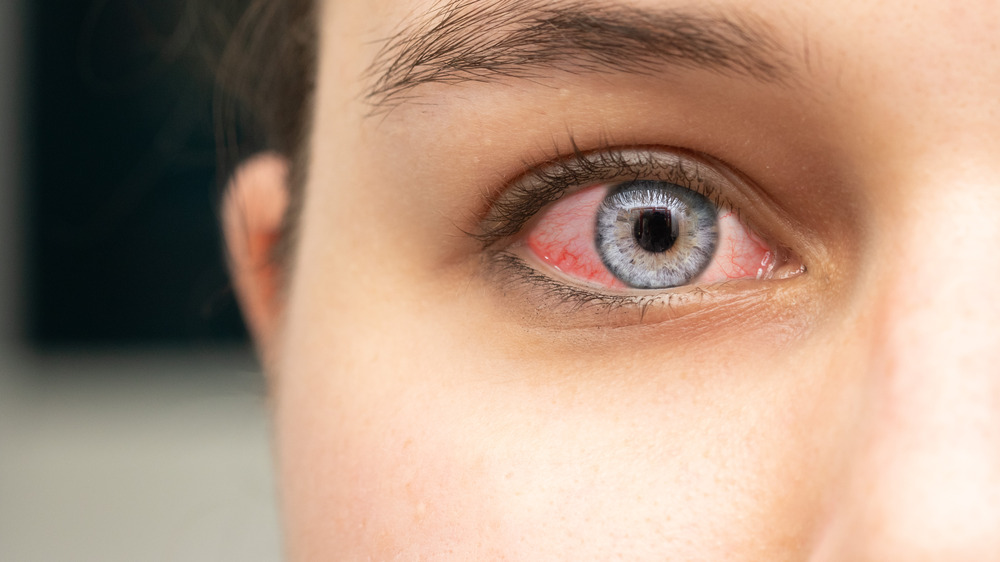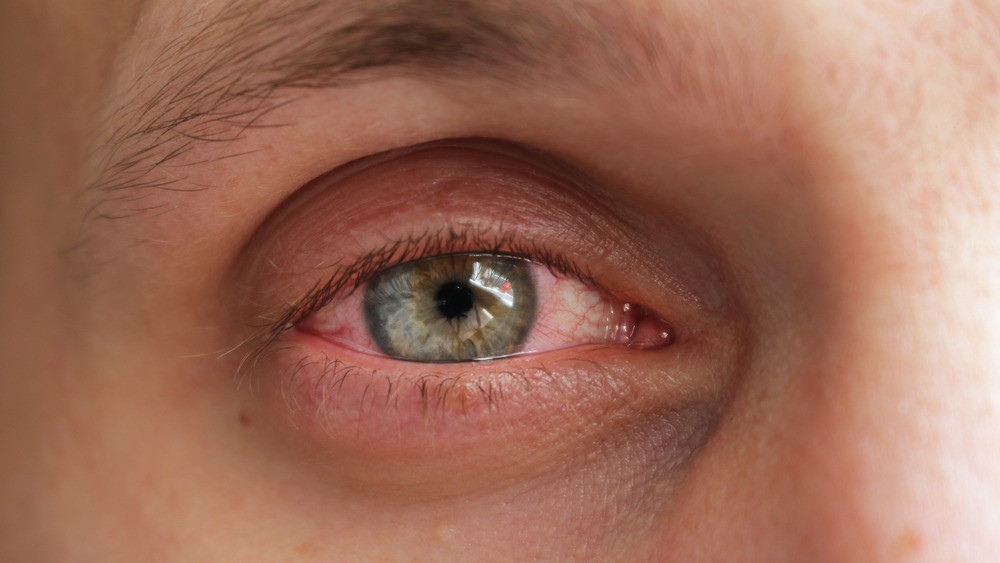You Might Have Pink Eye If This Happens To You
When the white of your eye becomes pink or reddish in color, you might have a condition called pink eye, or conjunctivitis (via Centers for Disease Control and Prevention). Symptoms of pink eye can vary, but in addition to the color change, can include watery eyes, itchiness, discharge from the eyes, and crusting of the eyelids of lashes. The most common causes of pink eye are viral and bacterial infections, but it can also be caused by allergies, a foreign object in the eye, or a chemical splash in the eye (via Mayo Clinic). In newborns, pink eye may also be the result of a blocked tear duct.
If conjunctivitis is caused by a bacterial infection, your doctor may prescribe antibiotics, typically given as eye drops or an ointment. Treatment for viral conjunctivitis is mainly focused on symptom management. Artificial tears, cleansing eyelids with a wet cloth, and applying cold or warm compresses several times daily can help with relief. If you wear contact lenses, you should stop wearing them until treatment is complete. If your contact lenses are disposable, your doctor will likely recommend throwing away the ones you've worn while symptomatic.
How to prevent pink eye from spreading
Viral or bacterial conjunctivitis is very contagious and can spread from person to person easily (via Healthline). This can occur through close contact, such as a handshake, hug, or kiss. The virus or bacteria can also live on surfaces so if an infected person touches their eye and then touches an object, someone else who touches that object runs the risk of infection. Pink eye is contagious once symptoms appear and remains so as long as there is discharge from the eye.
If you have conjunctivitis, wash your hands frequently and thoroughly for 20 seconds. Avoid touching or rubbing your eye and wash sheets, pillow cases, towels, and washcloths often in hot water. Use a fresh cotton ball or clean washcloth to wipe any discharge from your eye several times a day. Throw the cotton ball away immediately after or wash the cloth with hot water and detergent and make sure to wash your hands. Don't share personal items like pillows, towels, washcloths, eye drops, or makeup with others. Talk to your doctor about when you are able to return to work or school.


